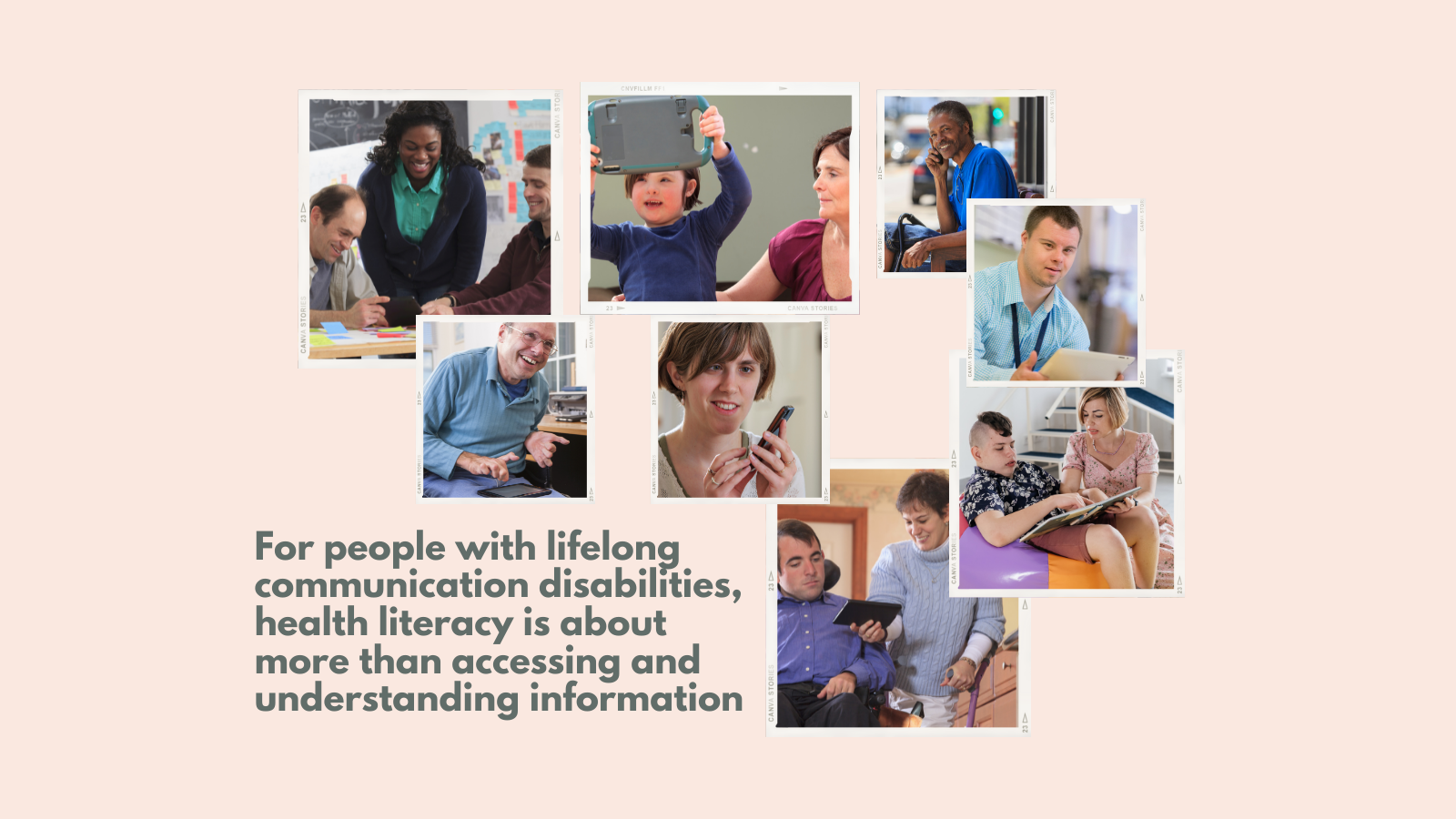For people with lifelong communication disabilities, health literacy is about more than accessing and understanding information
We need more – and better – evidence to help people with lifelong communication disabilities use health information in everyday situations, including to make decisions about their healthcare and wellbeing.
Fortunately, some of my favourite speech pathology researchers are on the case, including my former University colleague, Harmony Turnbull.
To support people with lifelong communication disabilities, we all need to know more about health literacy. So let’s start with the basics.
A. Health literacy 101
Health literacy. What is it?
Your ability to access, understand, evaluate, and use health information to participate in decisions affecting your health and to achieve better health.
What does it depend on?
Your skills and abilities, the format and media of the resources containing health information, your health objectives or goals, your life context, your health service contexts (e.g. hospital, clinic, work, home), and timeframes (e.g. across the lifespan).
Why does it matter?
Health literacy allows you to work toward your health and wellness goals across the lifespan. A lack of health literacy is correlated with poorer health outcomes.
B. Health literacy and people with communication disabilities
People with lifelong communication disabilities may have reduced health literacy.
People with lifelong communication disabilities are at greater risk of reduced health literacy. This seems logical, given the significant difficulties many people with communication disabilities have with understanding and using language, generally.
Why is this so important?
Everyone has a right to access healthcare. Reduced health literacy may explain, in part, why people with communication disabilities experience exclusion from health services, more frequent hospitalisation rates, higher risks of adverse events in hospital, problems with discharge, and higher risks of hospital readmission. Reduced health literacy may significantly reduce health and wellness outcomes for people with communication disabilities.
Known factors that help/hinder health literacy
For people with lifelong communication disabilities, health literacy may be affected by lots of factors, including oral language and reading comprehension skills, comprehension supports (e.g. modified oral and written language to make health information easier to understand), the level of support provided by family, friends, and others, the attitudes of other people, the quality of interactions with healthcare providers, and having opportunities to apply new knowledge (with or without support).
Evidence gaps
To date, most peer-reviewed research involving people with communication disabilities has focused on accessing and understanding health information.
We need studies about how people with communication disabilities apply health information in real world, everyday situations.
While we await more evidence, speech pathologists and other professionals can still help:
- We should provide regular written reports and other information to people with communication disabilities.
- We should work with clients to co-design and implement strategies to help find, understand and use good quality health information so that clients can make informed choices about their health.
Main source: Turnbull, H., Dark, L., Carnemolla, P., Skinner, I., Hemsley, B. (2022). A systematic review of the health literacy of adults with lifelong communication disability: Looking beyond accessing and understanding information. Patient Education and Counseling, preprint https://doi.org/10.1016/j.pec.2022.10.008 (open access for a limited time).
As usual, any errors of interpretation are mine alone. I recommend that all healthcare professionals read the cited paper.
This article also appears in a recent issue of Banter Booster, our weekly round up of the best speech pathology ideas and practice tips for busy speech pathologists, providers, speech pathology students, teachers and other interested readers.
Sign up to receive Banter Booster in your inbox each week:

Hi there, I’m David Kinnane.
Principal Speech Pathologist, Banter Speech & Language
Our talented team of certified practising speech pathologists provide unhurried, personalised and evidence-based speech pathology care to children and adults in the Inner West of Sydney and beyond, both in our clinic and via telehealth.








